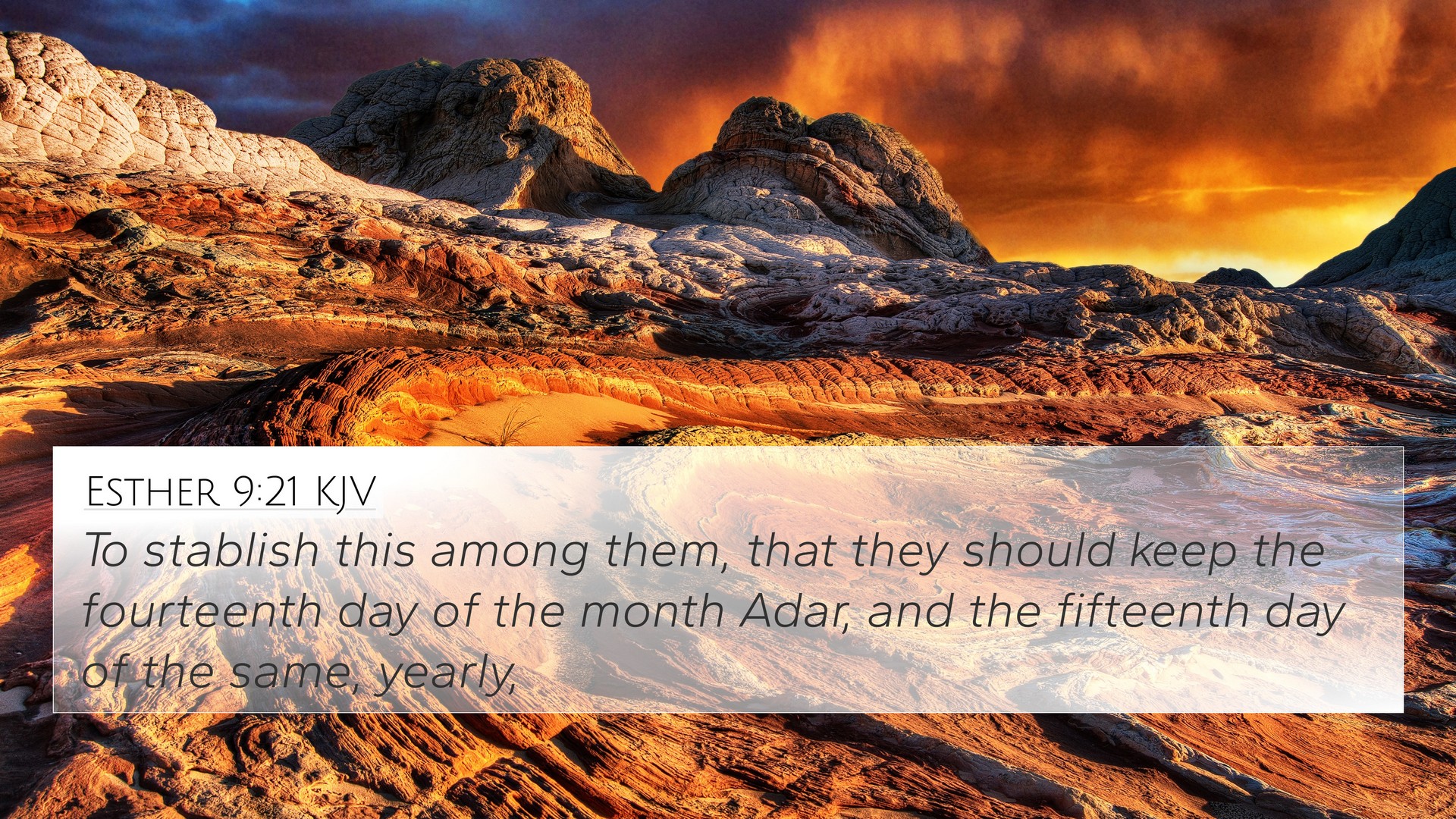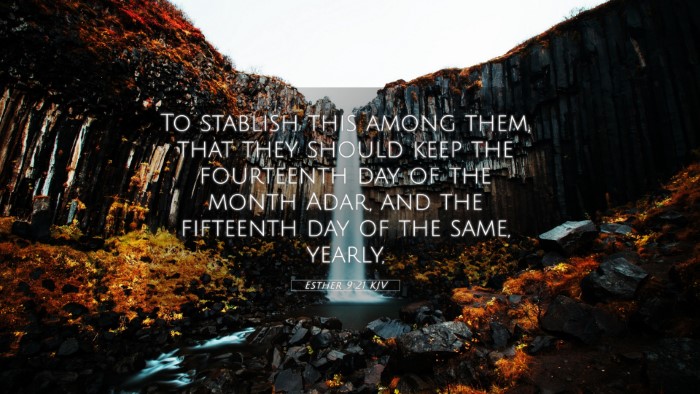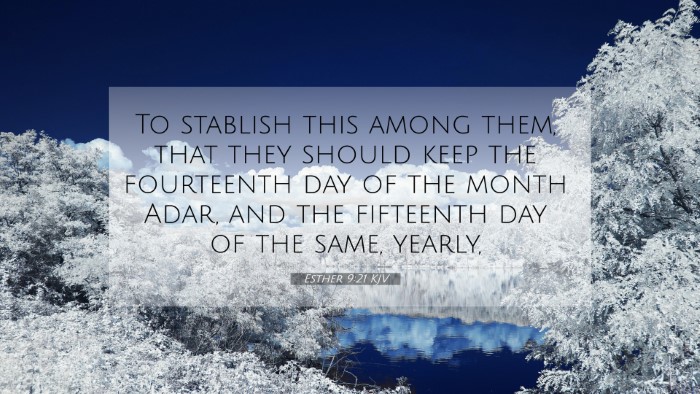Understanding Esther 9:21
Esther 9:21: "To establish these days of Purim at their appointed times, as Mordecai the Jew and Queen Esther had prescribed for them, and as they had decreed for themselves and their descendants, with regard to their fasts and lamentations."
The verse of Esther 9:21 stands as a pivotal moment in the story of the Jewish victory over their enemies. Here, we will explore its meaning through various insights and interpretations from historical and biblical commentaries.
Verse Significance and Context
This verse captures the essence of the institution of the festival of Purim, commemorating the deliverance of the Jewish people from annihilation. It emphasizes the importance of memory and tradition, highlighting how the Jews were encouraged to remember the past events of deliverance and to observe the associated days with joy and feasting.
Commentary Insights
-
Matthew Henry:
Henry suggests that this decree instills a sense of communal identity among the Jewish people. The establishment of Purim emphasizes collective remembrance and gratitude towards God for His providence during times of peril. The act of fasting reflects a humble acknowledgment of their reliance on divine intervention.
-
Albert Barnes:
Barnes notes the importance of Mordecai and Esther in this process, underscoring their roles as leaders and figures of faith. He analyzes the significance of their combined actions which led to the drafting of the decree, reflecting both a physical and spiritual deliverance.
-
Adam Clarke:
Clarke highlights the cultural implications of the festival being established by mutual agreement. He emphasizes that it symbolized the unity and perseverance of the Jewish people in recalling their deliverance and maintaining their cultural identity amidst adversity.
Thematic Connections
Esther 9:21 connects with broader themes in Scripture regarding deliverance, remembrance, and the establishment of religious traditions. The following cross-references enhance our understanding:
- Exodus 12:14: The Passover as a remembrance of God’s deliverance of Israel from Egypt.
- Deuteronomy 16:3: Instructions on keeping the feast of unleavened bread as a reminder of the Exodus.
- Psalm 78:4: The importance of recounting the works of God to future generations.
- Leviticus 23:40: The observance of the Feast of Tabernacles, emphasizing gratitude and remembrance.
- Jeremiah 31:31-34: The establishment of a new covenant, linking concepts of remembrance and renewal.
- Matthew 26:26-29: Jesus establishes the Last Supper as a new remembrance in the New Covenant.
- Luke 22:19: The command to "do this in remembrance of me," echoing the themes of memory in commemoration.
Application of Cross-Referencing
Understanding Esther 9:21 in the context of other biblical texts enhances interpretation and application. Cross-referencing can give deeper insights and show how biblical principles recur throughout scripture.
Tools for Bible Cross-Referencing
For deeper studies, various tools and methods can be employed:
- Bible Concordance: A great tool for locating specific words and phrases across scripture.
- Bible Cross-Reference Guide: A resource to help find connections between verses.
- Cross-Reference Bible Study: A method of studying verses that link together thematically or narratively.
- Comprehensive Bible Cross-Reference Materials: Resources that provide an extensive list of cross-references for detailed study.
Conclusion
Esther 9:21 serves as a profound reminder of deliverance, identity, and tradition. Through comparative analysis and thematic connections, believers can draw rich insights from this scripture. Utilizing tools for cross-referencing facilitates a deeper understanding of biblical narratives and their interconnections. In the grand narrative of Scripture, Esther 9:21 is a celebratory affirmation of God's faithfulness to His people through history.


